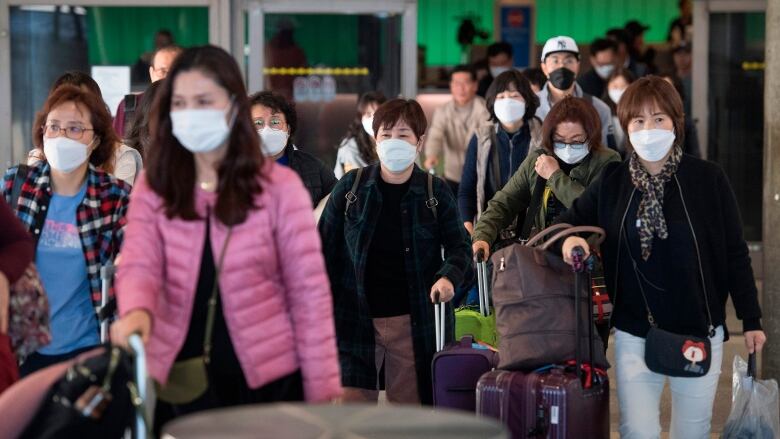B.C.'s top doctor clears up common misconceptions about virulence, transmission and spread of the coronavirus
Dr. Bonnie Henry says single case detected so far poses little risk

Provincial health officerDr. Bonnie Henrysays risk from the novel coronavirus is low for British Columbiansdespite one confirmedcase of the virus in the Vancouver Coastal Health region.
B.C.'s top doctor joinedhost Stephen QuinnonThe Early Edition Wednesday morning to answer questions about transmission, symptoms and protection against the virus, which broke out in the central Chinese city of Wuhan last month.
What do we know about this one case?
I'm very confident the tests we have at the B.C. Centre for Disease Control have identified this case.It is a man in his 40swho visited Wuhan on a business trip and had limited contact with others after flyingback to B.C.
Could the virus have been transmitted to others on the sameairplane?
The person did not have any symptoms on the flight and didn't develop symptoms until he returned home, so we do not believe there is risk to anybody who was on that flight.
Dr. Bonnie Henry answers British Columbians' questions in the video below:
Is it possible for people to transmit the virus before showing symptoms?
We haven't seen evidence of that yet.I think we don't know for sure and there may be some very limited people who might transmit it slightly before they develop symptoms, but that certainly is not what is driving the outbreak in China. It is clearly from people who are symptomatic and in close contact with others.
When you have the virus in droplets that get into the air, and other people breathe them in or contact them, that's how this virus is transmitted. It is very rare or unlikely that people will transmit it before they have symptoms.

Should employees who travelled to areas where the virus is affecting people have a medical check-up before returning to work?
I don't think at this point that is something we need to do.
People who have been in the area where the outbreak is happening should monitor themselves for symptoms and the moment they have any call their health care provider to let us know and we can safely get you to a place where you can be assessed,tested and cared for if need be.
We think the maximum incubation periodfor this virus is 14 days, but most people start having symptoms between day three andday six.
Should people travelling anywhere right now be taking extra precautions?
Right now, the risk to those of usoutside of China is very low.
I wouldn't take any other precautions than what we normally do clean your hands regularly, cover up your cough and sneezes and if you have a fever or feelunwell stay away from others.You're much more likely to come in contact with influenza at this time of year.
B.C.'s provincial health officer Dr. Bonnie Henry joins @CBCStephenQuinn to answer questions about coronavirus.https://t.co/OYv1mKyVbG https://t.co/fwbZlr8PNK
—@CBCEarlyEditionWhat does RO mean?
It's the reproduction number, so the number of people that are affected from each case.
Every person who is affected with influenza infects one or two people and for SARS it was around three to five. The coronavirus rate is probably around two to three.
What is the mortality rate?
When you have a new outbreak and a new diseaseyou see the most severe cases first and the mortality rate can look quite high initially.
Based on information from the World Health Organization, it looks like the number of people who die based on the number of those infected is possiblyless than SARS, which was around 10 per cent. This virus looks like it is around three to four per cent.
This interview aired on The Early Edition on Jan. 29 and has been edited for clarity and structure. To hear the complete interview, tap the audio link below or watch the Twitter video above:
With files from The Early Edition













_(720p).jpg)


 OFFICIAL HD MUSIC VIDEO.jpg)
.jpg)



























































































